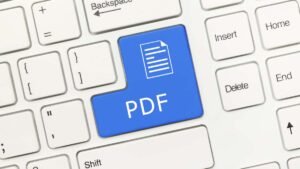Mac is optimized for super performance and maximum productivity. Due to continued use, you might note it is reducing speed. macOS might begin to start up slowly, and apps or documents could take time to open.
Several things can affect the way your Mac works. You might have too many open apps, or your disk might be filling up. You might have a virus attack, or the hardware might be faulty. To optimize your Mac performance, you must make sure the entire computer is healthy.
Keep the hard disk healthy
The hard drive of your Mac is an important component. Without it, it would be impossible for Mac to function. All your files, including macOS, are stored on the hard drive. If it is not healthy, it will be hard to boot your OS. It cannot retrieve files or save documents. You will often experience errors, and some apps might freeze.
Mac uses an SSD, and if it is unhealthy, you need to repair it. Start Mac and immediately press and hold the Command key + R key. Choose HFS or APFS and click First Aid. Click run to repair.
Your Mac must maintain maximum output all the time. When the hard drive is unhealthy, your computer can keep shutting down often. The reason is that macOS is unable to execute commands as you work. Try first to repair it and see how it behaves. If it keeps doing that, you might be required to replace the hard drive. Hard drive replacement is one of the options to optimize your Mac. You will be certain its productivity will be high for a longer time.
Keep all software updated
Outdated software pauses several risks to your productivity.
- Your Mac might suddenly become slow
- It could keep restarting itself
- It is a loophole for cybercriminals to access your data
- It could lead to data loss due to software failure
- Your system could be infected with bugs
To eliminate such dangers, the best option is to keep all your software updated. You may change settings for automatic updates or do it manually often.
Keep the hardware tidy
Naturally, the air is full of dust, even if you cannot always see it. Whenever you are using your Mac, its fan sucks a certain amount of dust. The dust builds with time, and it could affect the health and functioning of Mac. Once in a while, open the cover and blow off the dust. When you are not using it, cover it to keep off dust.
Keep viruses away
macOS comes with an inbuilt virus protection software. Whenever you connect online, you expose yourself to various types of virus attacks. Mac can be attacked by viruses such as:
- Ransomware
- Adware
- Trojans
- Malware
Some viruses can take your Mac system captive. Other types keep duplicating files while others steal your data. Use tools to boost your online security to keep off threats. If you are using an external hard drive, scan it before you open it.
Limit the number of apps you open at a time
You might be working using multiple apps, documents, and browser tabs. When they are open, they are saved in RAM for ease of access. RAM’s storage is limited, and it gets filled up fast. The latest Mac has RAM of 8 GB, 16 GB, and some might have 32 GB.
Compared to SSD, this is small storage. If it fills up, applications and documents become slow. The more documents, apps, and tabs you keep open, the faster the RAM fills up. To optimize productivity, limit the number to the minimum.
Clean up files
Your Mac’s hard drive is like a tiny store for storing your documents and apps. With every app, file, or document you add, the storage keeps filling up. The more it is full, the harder it is to retrieve apps and documents. It affects the speed, productivity, and health of your Mac. Do not crowd the hard drive with content but remove all files and apps that you do not use often. You may store them in the cloud or on an external disk.
Conclusion
Your Mac should stay optimized to boost productivity. It can become slow due to outdated software, a faulty hard drive, or too many documents. To optimize your Mac, keep your computer free from viruses. Limit the number of open documents or apps and clean your hard drive from excess documents. You must make sure every application stays updated. Keep the hardware healthy to avoid affecting your Mac functionality.




